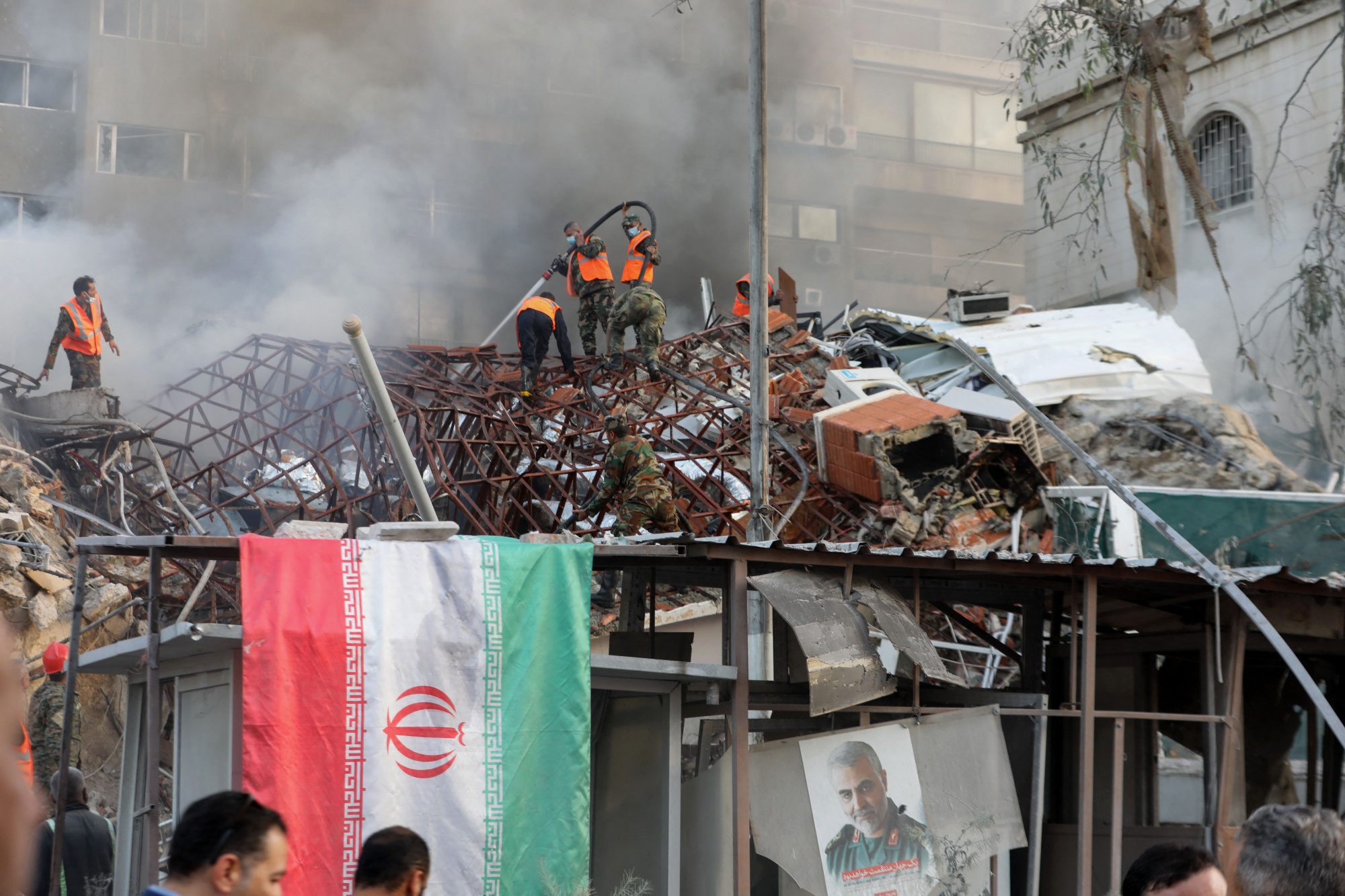
According to some analysts and regional outlets, there are indications of a growing divide between the Assad regime and Iran, signaling a potential shift in their longstanding alliance. After years of robust support from Tehran, recent developments suggest strains, particularly in the aftermath of the Israeli military campaign on Gaza. Speculations about a rapprochement between Assad and “Western powers” have further fueled tensions between the two allies.
Reports from the Saudi newspaper Asharq Al-Awsat highlight Iran’s apprehensions regarding Assad’s willingness to engage in negotiations with the West, potentially at Tehran’s expense. This is due to concerns over security leaks or deliberate negligence concerning Iranian assets in Syria allowing Israel and Western powers to strike Iran’s material infrastructure and personnel. Iran has also cast doubts on the Assad regime’s tepid and “moderate” stance regarding the conflict in Gaza. Tehran seems particularly distraught following Israeli airstrikes targeting Iranian interests in Damascus, resulting in the deaths of high-ranking Iranian officials.
The Israeli attacks on the Iranian consulate, coupled with the escalation of hostilities in Gaza, have strained Iranian-Syrian relations. Tehran suspects that Assad’s neutral position during the Gaza conflict may be a strategic move to curry favor with Western powers, prompting Iran to reconsider its level of support for the Syrian regime.
In response to these developments, Iran has reportedly relocated the headquarters of the Iranian Revolutionary Guard Corps (IRGC) from Damascus to areas near Lebanon. This move reflects Tehran’s concerns about the safety of its personnel in Syria and hints at a potential reduction in assistance to the Assad regime.
Allegations of Assad’s regime’s involvement in leaking information to Israel, leading to the assassination of top Iranian officials in Damascus, have further strained relations between Tehran and Damascus. Reports suggest that Iran has initiated independent investigations with the assistance of Hezbollah in Lebanon, underscoring the severity of the rift between the two allies.
Assad’s perceived neutrality regarding Israel has also irked Tehran, with some speculating that economic or political incentives from the West may drive his motives. Reports of Israeli warnings to Assad regarding Syrian involvement in operations targeting Israel indicate the complexity of regional dynamics and the pressure faced by the Assad regime to navigate conflicting interests.
The emerging tensions between Iran and the Assad regime have also manifested in economic spheres, with Iran pressing to recover its substantial debts from Syria. Despite years of investment and economic agreements between the two parties, Iran’s exports to Syria have declined significantly, reflecting a broader deterioration in their relationship.
The current state of affairs raises questions about the future of the longstanding alliance between Iran and the Assad regime. The emergence of voices within Syria calling for the departure of Iranian militias further underscores the growing discontent with Tehran’s influence in the country. As accusations of betrayal and economic disputes escalate, observers are left to ponder whether the once-solid alliance between Iran and the Assad regime has reached a breaking point.








